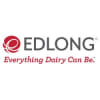Three years ago, when Matt McLean sold the organic beverage business he started back in 1999, he didn't plan to ever be buying it back.
But that all changed after its parent company Dean Foods filed for bankruptcy and began the process of selling off each part of its portfolio.
As organic beverages grew increasingly popular, Dean bought Uncle Matt's in June 2017 to expand its portfolio outside of dairy as its core brands struggled with changing consumer demands. Dean retained the team to continue running the business, including McLean and his wife, Susan McLean, who oversees marketing.
McLean said he was offered a three-year long incentive to stay with the company when he sold. He hoped to stay for the entire tenure to make sure it was in good hands and learn about working under a public company. While he did learn the ins and outs of big business, he is not handing over the company like he anticipated.
"It was definitely not something I expected when we sold the company that I would have that opportunity come back again," he said.
As Dean Foods faced mounting debt and struggled with competition, the company replaced its CEO Ralph Scozzafava with Eric Beringause last year and set off a chain of events that would end with a bankruptcy filing.
"When the new CEO came in, the first meeting I had with him, he was very open that 'Hey, we're probably going in a different direction.' And it had more to do with focusing on dairy and their core business, which I totally understood. At that time, he said, 'Hey, have you ever thought about buying the company back?' And I said, 'Well, no I haven't but let me talk to my wife and start thinking about that.' And then, before we knew it, they had filed for bankruptcy and so it became a different story," McLean said.

After Dean Foods filed for Chapter 11 bankruptcy protection back in November, McLean said he planned to bid for the brand he started. McLean formed a new parent company named Harmoni with a team of investors, including Gary Hirshberg, co-founder of Stonyfield Organic, and John Foraker, former CEO of Annie’s and co-founder and CEO of Once Upon a Farm. Together, they bought his business back for about $7.25 million.
"It is rare to have the opportunity to invest in and support a 'start-up' with so much history and opportunity ahead of it," Foraker said in a release.
The sale was finalized April 30. Now McLean is working to capitalize on the pandemic demand for functionality as it continues to build the company's reach.
"We had a labor of love owning it for 17 and a half years. I founded it in June of 1999. And when you have something that you believe in and you really live the mission and vision every day, if the opportunity is there to buy it back, we thought it made perfect sense," he said.
Owning the business again
Buying a company during a bankruptcy sale wasn't simple. McLean said it was a complicated process because it was an $8 billion public company with a lot of assets and creditors. Dean also faced scrutiny because most of its assets were sold to Dairy Farmers of America for $433 million, which has raised antitrust concerns.
Uncle Matt's is just a tiny piece of that bankruptcy, McLean said, but the purchase agreement was 110 pages. "If you don't win the bankruptcy, guess what, you're stuck with those attorney bills. So we had that at risk and luckily we had the winning bid," he said. "We got a price that was the most we could pay and I hope it returned the most to the shareholders that were affected."
McLean said he and his wife have spent hours on investor calls asking countless questions about best practices as they prepare to return to the challenges of owning their own business.
What will change from working under Dean to going back to a family business? McLean joked that he won't have to watch the required HR videos anymore, but the biggest change is that the company will be more nimble again.
"I mean just today we can come up with an idea and tomorrow we can begin work on it, and it doesn't have to go through a larger committee to get approval," he said. "I think in the new paradigm with the internet and how fast things can change and how quickly trends can move, it's no longer really the big eat the small, but it's kind of the fast eat the slow. And so being able to be quick and nimble to react to what customers' needs are is what I'm going to enjoy the most."
McLean was still running the brand when it was under Dean, and he said the milk giant's role in the company was more behind the scenes with accounting and financing. He said the company still had the same quality juice, the same growers and suppliers, and he was still steering the vision of the company.
"My wife and I continued on full time and ran the company. My dad and brother continued as well, part time on the agronomy side. Our headquarters remained here in Clermont, Florida," he said.
Internally though, a lot changed going from a small family business to being owned by a multi-billion dollar public company, traded on NASDAQ. He said he needed to comply with their legal and finance teams, making sure they closed their books on time by the end of the month so they could report publicly. Although he controlled the mission for the brand, he said Dean also helped with invoicing and customer service as well as some logistics and supply.
Growing the company in a pandemic
Buying a brand and launching products during a pandemic can be a challenging feat, but McLean said consumers are looking for the products Uncle Matt's offers to strengthen their immunity during this time.
Orange juice retail sales in the U.S. increased 46% from the year before to 44 million gallons in the four weeks ending April 11, as people want beverages with attributes like vitamin C. McLean called it the "rebirth of orange juice" because it's no longer being demonized for its natural sugar content.
"We're going to stay laser focused on what we do best, and that's grow our core brand," he said. "Orange juice is having its time in the sun right now because of its natural capabilities to help boost the immune system and vitamin C and everything that goes on with bioflavonoids, powerful antioxidants that are naturally occurring in an orange juice. We're seeing strong growth across the board in our orange juice items and so we're going to just continue to ride that momentum."
The company is also launching products around functionality. It created frozen Probiotic Pops sweetened only with fruit juice. McLean said they are one of the first "to take functionality over into that frozen case." Uncle Matt's also launched some no sugar lemonades, so instead of putting cane sugar in lemonade, they sweetened it with Reb M stevia.
"We've got a good amount of interest in people wanting the Probiotic Pops because of the health and wellness focus coming out of this pandemic. And I don't think it's going to be a flash in the pan. I think it's something that people are going to be on a regular basis looking for things they can do in their daily diet," he said. "So I think we're well positioned to do that as the market leader in organic orange juice."
'That heartbeat goes away'
When asked why McLean decided to sell in the first place, he said it was the right time. Uncle Matt's was looking to do another round of funding, but some people were really interested in not just investing but buying it. "So we thought long and hard and at the end of the day we said, you know what, this is a really good opportunity: why don't we go ahead and just sell the company now? So that's what we did," he said.
More small businesses are being gobbled up by big name companies in recent years, but those sales don't always stick. Last year, Campbell Soup Co. announced it was selling its Bolthouse Farms business to an affiliate of private equity firm Butterfly Equity for $510 million, where Jeff Dunn, Bolthouse's former CEO, is an operating partner. And just this month, Hershey announced it is selling Krave to an incubator run by Jon Sebastiani, who started the jerky brand in 2009.
"It was definitely not something I expected when we sold the company that I would have that opportunity come back again."

Matt McLean
Founder, Uncle Matt's Organic
Why are more founders buying back their brands? McLean said it is largely circumstantial, where some of the bigger companies get in and they're not able to integrate it correctly or they don't keep the same passion of the founder. A lot of startup companies are mission driven and "if you remove the founder, sometimes that heartbeat goes away," he said.
"In our instance, it had nothing to do with that. I was still there and we were still innovating and driving organic and they didn't impede me at all from chasing those dreams. They just had an unfortunate situation with milk decline and too many dairies and assets that they couldn't get enough volume through because of the decline of milk," he said.
But would he be willing to sell again? McLean said he loves what he does and it doesn't feel like work so he could imagine himself running the company for years to come, but wouldn't be opposed to selling again for the right opportunity.
"I hate to live in the hypothetical, but I would say if I sold it once, if we believed there was another great opportunity out there, I wouldn't turn away from it. But at the same time, when I first started Uncle Matt's, I thought it would be a multigenerational company so you just never know," McLean said.






















